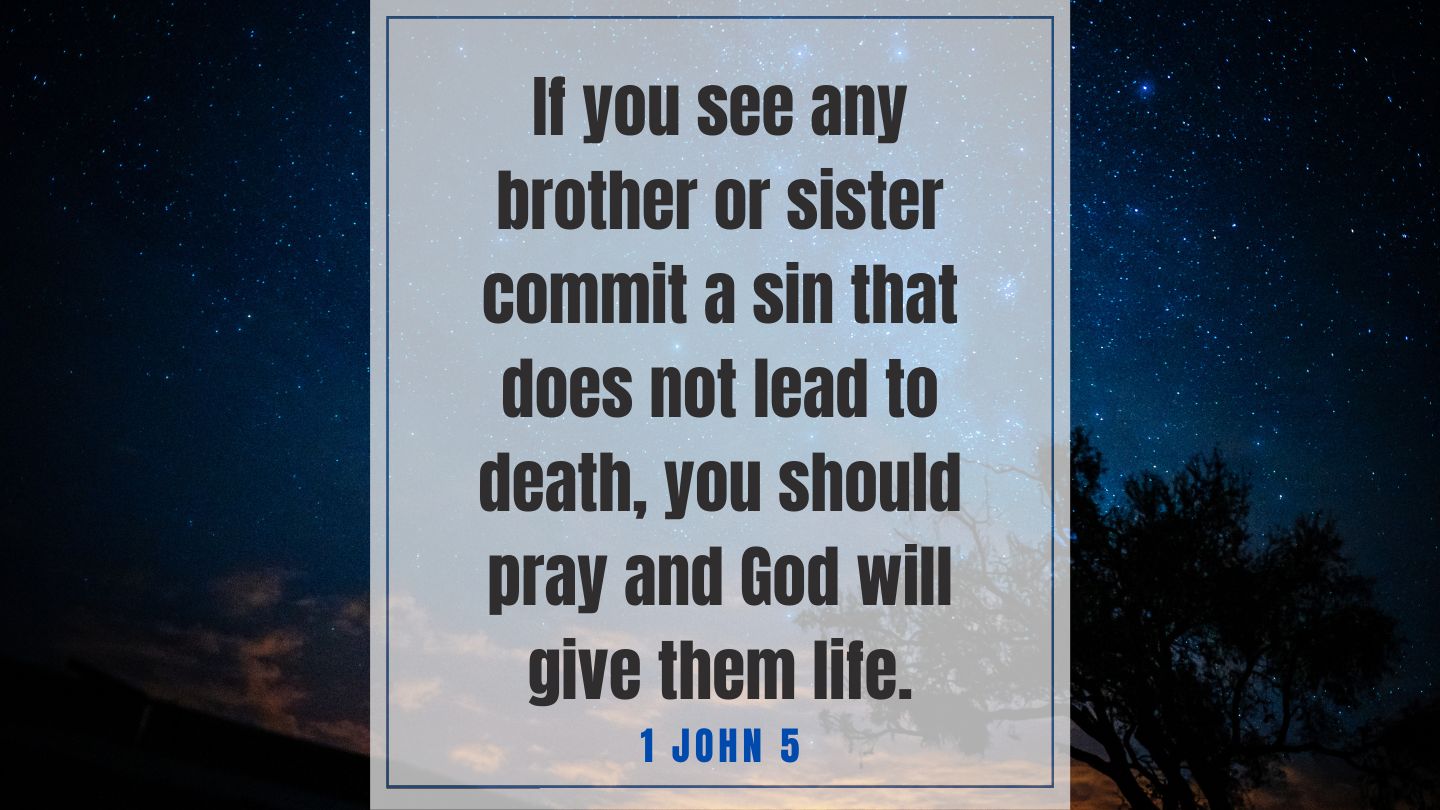First John 5 is the final chapter of the First Epistle of John, a letter written by the apostle John to early Christian communities in the first century AD. The chapter discusses the nature of faith and the importance of belief in Jesus Christ. One of the key themes in the chapter is the concept of sin and its role in the life of the believer.
In 1 John 5:16-17, the author writes, “If you see any brother or sister commit a sin that does not lead to death, you should pray and God will give them life. I refer to those whose sin does not lead to death. There is a sin that leads to death. I am not saying that you should pray about that. All wrongdoing is sin, and there is sin that does not lead to death.”
This passage suggests that there are different types of sin, and that some sins are more serious than others. The author distinguishes between a sin that leads to death and a sin that does not lead to death. The nature of these sins is not specified, but some scholars have suggested that the sin that leads to death may be a willful rejection of the truth of the gospel, while the sin that does not lead to death may be a less serious offense.
The passage also suggests that believers have a responsibility to pray for one another and to seek forgiveness for their sins. The author emphasizes that all wrongdoing is sin, but also suggests that some sins may be less serious than others. This suggests that the Christian life is not about being sinless, but about acknowledging and confessing one’s sins and seeking forgiveness and reconciliation with God and others.
Overall, the meaning of sin in 1 John 5 is that sin is a part of the human condition, but that believers have a responsibility to acknowledge their sins, seek forgiveness, and live a life of faith and righteousness. The passage suggests that while all wrongdoing is sin, some sins may be more serious than others, and that believers have a responsibility to pray for one another and seek forgiveness for their sins. Ultimately, the chapter emphasizes the importance of belief in Jesus Christ and the power of faith to overcome sin and death.


